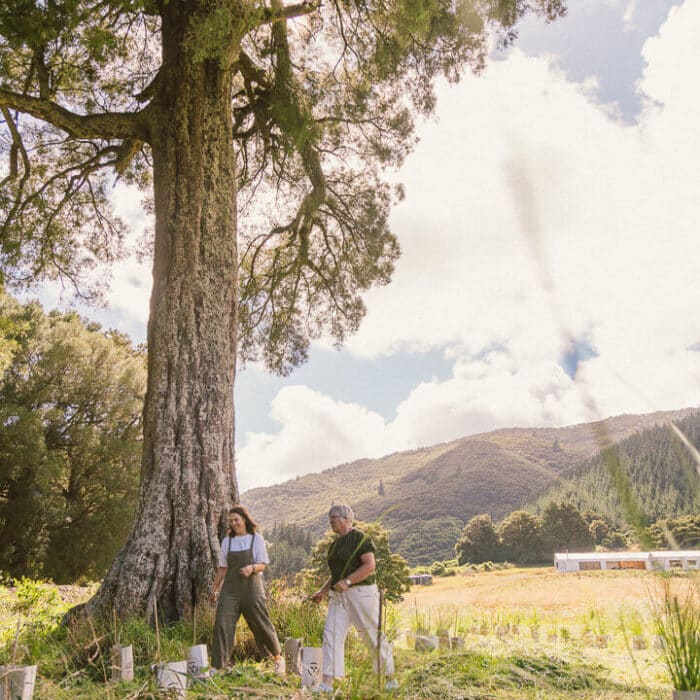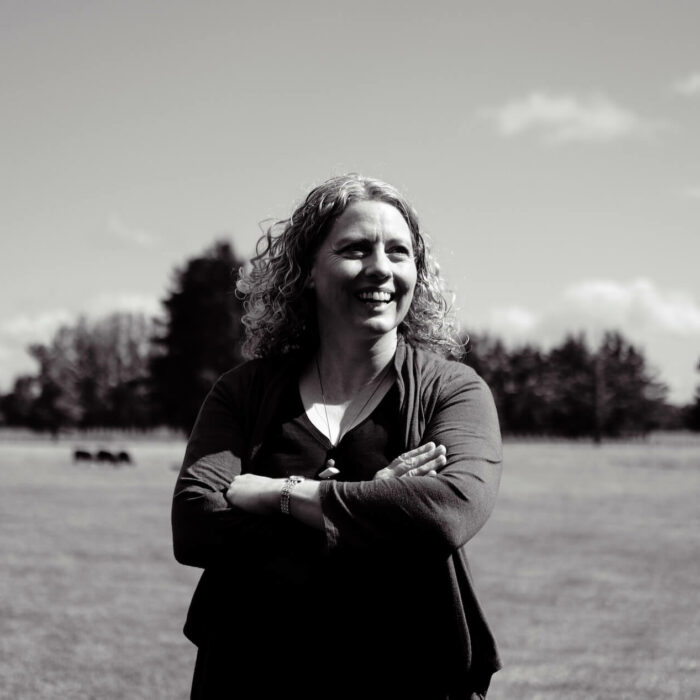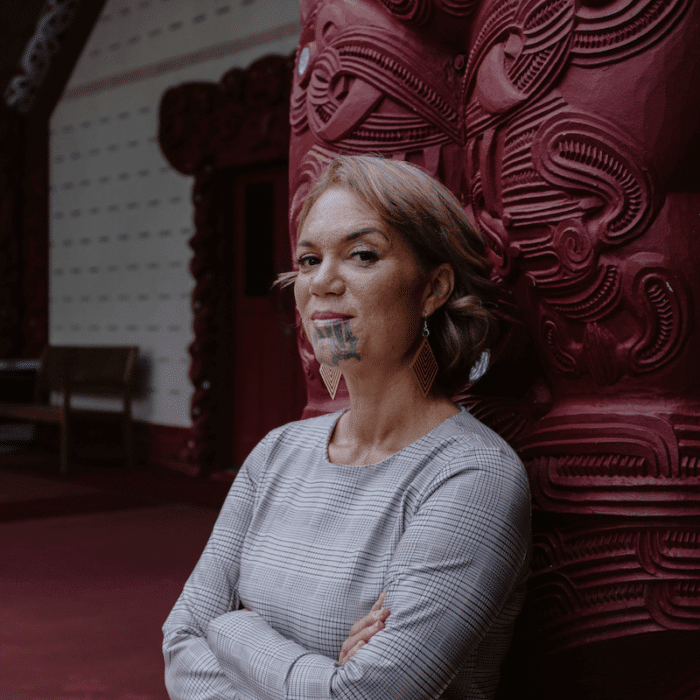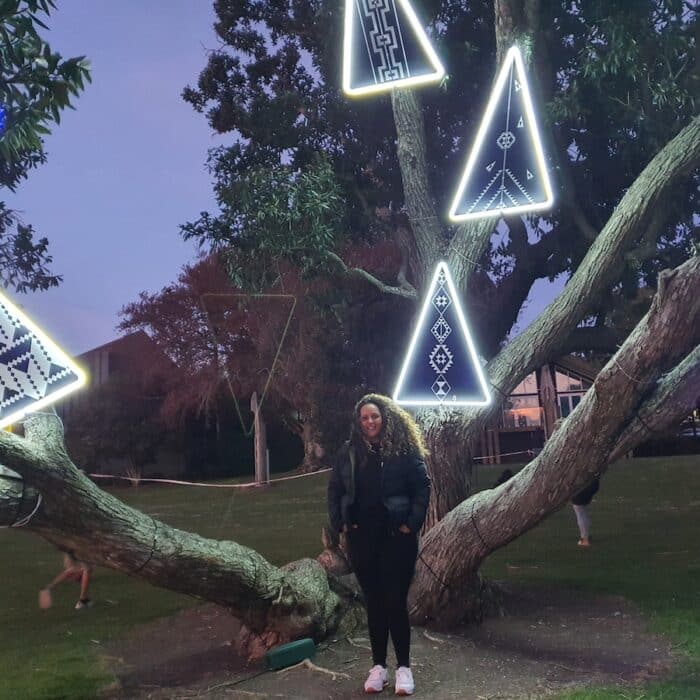
We’ve always had a big connection to this valley. Mum’s family were the first European settlers in Makarora, back in the 1860s, and Dad’s work was based between Haast and Wānaka, so we were always coming through Makarora. Those early settlers endured much hardship, and the road was gravel right up until the sixties, so it’s always been a remote location. We moved up here as a family in 2000 when my parents bought a farm at the head of the lake. Dad had a helicopter business and later bought Wilkin River Jets.
You could say I had a very adventurous childhood. We were a busy family that enjoyed horses, hunting trips and adventures on the West Coast. We had heaps of fun, but Dad was always working so a lot of the time it was just Mum, me and my sister. I spent summer holidays from boarding school in Dunedin working in the local cafes. Quite often after work my sister and I would be in the sheep yards helping Dad with the lambs. It was a small farm, but he had a lot of fattening stock coming through, so we’d be weighing the lambs and getting them off.
After school, I trained on the jet boat – working summers on the river and travelling over winter. I spent three winters in the Australian Outback on a station a few hours out of Katherine in the Northern Territory and travelling around campdrafting horses. I thought about living elsewhere, but I really enjoyed Makarora, and when my family needed a hand I wanted to be the person to help.
In 2014, my husband, Alec, and I bought forty per cent of the jet boat business and we’ve been here since. Farming and tourism go hand in hand in Makarora. Jet boating starts in October and goes through to early May, and we have a fencing business for the off-season. It’s a bit of a juggling act.
We have two boys, Max, 7, and Ollie, 5, born and bred in Makarora. It’s a good place to bring up boys – they’re hunting mad. Gumboots and camo seem to be the uniform. I’m also the presiding member of the board of trustees at Makarora Primary School. It’s a great wee school with a lot of commitment from parents and our great team of staff. We’re happy to raise our kids here and a huge part of that decision is based on how strongly you feel about a place. They’re always the first to tell someone they come from Makarora. But it is hard to live here at times.
Being pregnant and bringing up a baby I realised how difficult it could be. You’re forty-five minutes from the nearest doctor or groceries, so there’s a lot to get your head around. You become very resourceful, and your kids learn to travel! It can also be emotionally isolating – you have to be okay with your own company. I was lucky to have Mum and Dad living close by when the babies were little.
I get worried when it rains and rains. In 2020 we had a big rain at the start of December. The lake and the river came right up to one-and-a-half paddocks from the house on Dad’s farm. The hinds were calving, and we had to go down in waders to pick fawns out of the bulrushes and try to get them back to their mums. It was heartbreaking. We didn’t have to evacuate, but it was the biggest flood I’ve seen in Makarora.
Luckily, we’re very resilient up here. There are a lot of capable, creative people and, at the same time, there’s a lot of acceptance – which I think is huge in a small community. We’re a diverse lot with many differing views and although we get frustrated with each other from time to time, whenever there’s extensive power cuts, or people in trouble, or a tragedy, you see the community come together. That’s what makes living in Makarora hugely attractive. That and the scenery.
The Wilkin Valley up to Kerin Forks is my favourite place. You just don’t get sick of the views. It takes seven or eight hours to walk in, or you need to take a jet boat, so you must be pretty committed to get there. There’s a healing quality that instantly relaxes me. And it’s always changing. I’ve been there in gale-force winds when the whole valley is roaring – torrential rain, waterfalls crashing, the river raging, everything pumping to the point where your heart is racing. It’s the most terrifying yet magnificent feeling. And then two days later it’s perfectly still and you’re lying in the sun – such a contrast!
This story appeared in the Ngahuru Autumn 2023 Edition of Shepherdess. You can find your copy at one of our stockists or order one here.
Related Stories
Growing Up Green
Raised by eco-conscious parents in Hira, Emma Fryer is disrupting the plant-restoration industry with her environmentally friendly plant guard – the EmGuard.
The benefits of a collective oomph – how taking part in AWDT’s ‘It’s all about YOU’ programme led to longstanding connections and a rewarding career
Katherine credits this course with helping her to find inspiration and confidence to embark on a journey in life coaching, teaching, and group facilitation.
Wisdom from the Skies
Heeni Hoterene transforms maramataka lunar calendar wisdom for modern contexts, so it resonates with an ever-evolving world.
Fiona Collis on Reaching Beyond Her Local Patch
Fiona is a fibre and textiles artist using traditional knowledge and practices handed down by her ancestors to experiment with traditional Māori textiles.
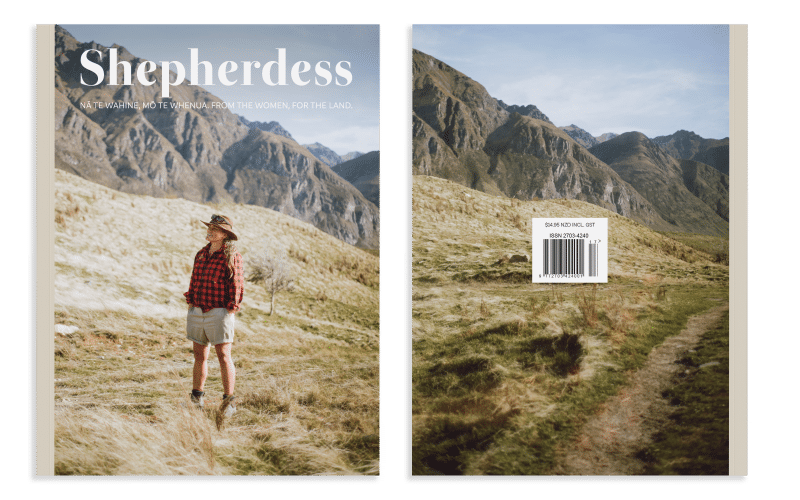
Out Now
Seventeenth Edition
Our beautiful Ngahuru Autumn 2024 Edition is out now!
